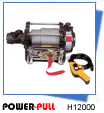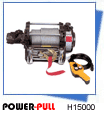如何用简单英语写作
Contents
This guide begins with an introduction called, ‘So what's plain English?’
The guide then looks at the main ways to make writing clearer.
- Keep your sentences short
- Prefer active verbs
- Use 'you' and 'we'
- Use words that are appropriate for the reader
- Don't be afraid to give instructions
- Avoid nominalisations
- Use lists where appropriate
The guide then looks at the difficult subject of apologising, and deals with some of the myths that can get in the way of clear communication.
The guide finishes with a summary and a list of words to avoid.
So what's plain English?
First let's say what plain English isn't and destroy some of the myths about it.
- It's not 'cat sat on the mat’ or 'Janet and John' writing. Almost anything - from leaflets and letters to legal documents - can be written in plain English without being patronising or oversimplified.
- It doesn't mean reducing the length of your message or changing its meaning. Most of the UK's biggest insurance companies produce policies that explain everything fully in plain English.
- It's not about banning new words, killing off long words or promoting completely perfect grammar. Nor is it about letting grammar slip.
- It is not an amateur's method of communication. Most forward-looking senior managers always write in plain English.
- And finally, it is not as easy as we would like to think.
Sadly, thanks to the bureaucrats of public service industries, local councils, banks, building societies, insurance companies and government departments, we have learnt to accept an official style of writing that is inefficient and often unfriendly.
But in the last few years, many of these offenders have started to put things right, either rewriting their documents clearly or training their staff in the art of plain English, or both.
The main advantages of plain English are:
- it is faster to write;
- it is faster to read; and
- you get your message across more often, more easily and in a friendlier way.
If you spend more than an hour a day writing, you are to an extent a professional writer. So it's vital that you get it right.
So what is plain English? It is a message, written with the reader in mind and with the right tone of voice, that is clear and concise.
Keep your sentences short
Most experts would agree that clear writing should have an average sentence length of 15 to 20 words.
This does not mean making every sentence the same length. Be punchy. Vary your writing by mixing short sentences (like the last one) with longer ones (like this one). Follow the basic principle of sticking to one main idea in a sentence, plus perhaps one other related point. You should soon be able to keep to the average sentence length - used by top journalists and authors - quite easily.
However, at first you may still find yourself writing the odd long sentence, especially when trying to explain a complicated point. But most long sentences can be broken up in some way.
Prefer active verbs
Do you want your letters to sound active or passive - crisp and professional or stuffy and bureaucratic?
To explain the difference between active and passive verbs, we need to look briefly at how a sentence fits together. There are three main parts to almost every sentence:
- a subject (the person, group or thing doing the action);
- a verb (the action itself); and
- an object (the person, group or thing that the action is done to).
To give an example, in the sentence 'Peter watched the television':
- the subject is Peter (he is doing the watching);
- the verb is watched; and
- the object is the television (it is being watched).
Of course, there will usually be lots of other words as well. For example: 'Peter, the boy from number 13, watched the television every Friday night'. But the subject, verb and object are still there.
Peter (subject) watched (verb) the television (object).
'Watched' is an active verb here. The sentence says who is doing the watching before it says what is being watched.
With a passive sentence, the object becomes the subject and the subject becomes the object. The television (subject) was watched (verb) by Peter (object).
Watched is a passive verb here.
You can see that by making the sentence passive, we have had to introduce the words 'was' and 'by', and the sentence becomes more clumsy.
Remember that the subject is not always a person and the object is not always a thing! 'The tree crushed Peter' is active but 'Peter was crushed by the tree' is passive.
Here are some more examples of how to turn a passive verb into an active verb.
This matter will be considered by us shortly. (Passive)
- We will consider this matter shortly. (Active)
The riot was stopped by the police. (Passive)
- The police stopped the riot. (Active)
The mine had to be closed by the authority. (Passive)
- The authority had to close the mine. (Active)
Passive verbs cause several problems.
- They can be confusing.
- They often make writing more long-winded.
- They make writing less lively.
Good uses of passives
There are times of course when it might be appropriate to use a passive.
- To make something less hostile - 'this bill has not been paid' (passive) is softer than 'you have not paid this bill' (active).
- To avoid taking the blame - 'a mistake was made' (passive) rather than 'we made a mistake' (active).
- When you don't know who or what the doer is - 'the England team has been picked'.
- If it simply sounds better.
But aim to make about 80 to 90% of your verbs active.
This difference between active and passive verbs is not easy to grasp. Some people never really get it. So if you are confused, read this section again.
Use 'you' and 'we'
Try to call the reader 'you', even if the reader is only one of many people you are talking about generally. If this feels wrong at first, remember that you wouldn't use words like 'the applicant' and 'the supplier' if you were speaking to somebody sitting across a desk from you.
Here are some examples of this.
Applicants must send us...
- You must send us...
We always tell customers before we...
- We will tell you before we...
Advice is available from...
- You can get advice from
Similarly, always call your organisation 'we'. And there is nothing wrong with using 'we' and 'I' in the same letter.
Use words that are appropriate for the reader
When you are talking to your reader, say exactly what you mean, using the simplest words that fit. This does not necessarily mean only using simple words - just words that the reader will understand.
At the end of this guide there is a list of a few of the words that we suggest you avoid. But for most words you will have to decide yourself whether they are suitable.
Jargon is a type of language that is only understood by a particular group of people. You can use jargon when writing to people who will understand the terms and phrases. It can be a useful form of shorthand. But try to avoid using specialist jargon on the general public.
So in general, keep to everyday English whenever possible. And again, imagine talking to your reader across a table.
Don't be afraid to give instructions
Sit!
Brush your teeth.
Please send it to me.
These are all commands - officially called imperatives. They are the fastest and most direct way of giving someone instructions.
However, if we asked a hardened bureaucrat to write these expressions, we would end up with something like the following.
Dogs are advised that they should sit down.
Your teeth should be brushed.
I should be grateful if you would send it to me.
There always seems to be a fear of commands. The most common fault is putting 'customers should do this' or 'you should do this' instead of just 'do this'. Perhaps people worry that commands sound too harsh. But you can often solve this by putting the word 'please' in front. However, if something must be done, it is best not to say ‘please’ as it gives the reader the option to refuse the request.
Here are some examples of long-winded phrases and shorter versions that use commands.
You should just think of it as a complete statement.
- Just think of it as a complete statement.
Writers should aim to be punchy.
- Be punchy.
They should be split where suitable
- Split them where suitable.
The last example is probably the worst because it uses a passive verb - 'should be split'. Unfortunately this is very common in instructions. For example:
The packet should be removed from the box. The contents should then be placed in the oven.
- Remove the packet from the box. Then place the contents in the oven.
Avoid nominalisations
A nominalisation is a type of abstract noun. (Is that plain English?) In other words, it is the name of something that isn't a physical object, such as a process, technique or emotion.
Nominalisations are formed from verbs.
For example:
| Verb | Nominalisation |
| complete | completion |
| introduce | introduction |
| provide | provision |
| fail | failure |
| arrange | arrangement |
| investigate | investigation |
So what's wrong with them?
The problem is that often they are used instead of the verbs they come from. And because they are merely the names of things, they sound as if nothing is actually happening in the sentence. Like passive verbs, too many of them make writing very dull and heavy-going.
Here are some examples.
We had a discussion about the matter.
- We discussed the matter.
There will be a stoppage of trains by drivers.
- Drivers will stop the trains.
The implementation of the method has been done by a team.
- A team has implemented the method.
Use lists where appropriate
Lists are excellent for splitting information up.
There are two main types of list.
- A list that is a continuous sentence with several listed points picked out at the beginning, middle or end.
- A list of separate points with an introductory statement (like this list).
In the list above, each point is a complete sentence so they each start with a capital letter and end with a full stop.
With a list that is part of a continuous sentence, put semicolons (;) after each point and start each with a lower-case letter.
If you can prove that:
- you were somewhere else at the time;
- you were not related to Mary; and
- you are over 21;
you should be all right
As you can see, the next to last point has 'and' after the semicolon. If you only had to prove one of the three points instead of all of them, this word would be 'or'.
Make sure each point follows logically and grammatically from the introduction. For example, if you took out 'you' from the second and third points it would still flow as a normal sentence but not as a list. The introductory line and the third point would then read, 'If you can prove that are over 21', which obviously does not make sense.
For a list of short points, it is better to set it out in one of the following ways.
Kevin needed to take the following.
- A penknife
- Some string
- A pad of paper
- A pen
Kevin needed to take:
- a penknife
- some string
- a pad of paper; and
- a pen.
You should use bullet points in lists. These are better than numbers or letters as they draw your attention to each point without giving you extra information to take in.
Apologising
If you are replying to a tricky letter or a complaint, or are dealing with a difficult problem, put yourself in the reader's shoes. Be professional, not emotional. You may have to give a firm, unwelcome answer, but be as helpful and polite as possible. If you are going to apologise, do so early. If the problem is your fault, say so. Apologise completely and concisely, sympathetically and sincerely. And whether it is your fault or not, try to emphasise what you can do for the other person.
Myths
We're not trying to be trendy here by breaking grammatical rules. We're just going to destroy some of the grammatical myths.
- You can start a sentence with and, but, because, so or however.
- You can split infinitives. So you can say to boldly go.
- You can end a sentence with a preposition. In fact, it is something we should stand up for.
- And you can use the same word twice in a sentence if you can't find a better word.
Of course, this does not mean you should break these so-called rules all the time - just when they make a sentence flow better.
Summary
- Stop and think before you start writing. Make a note of the points you want to make in a logical order.
- Prefer short words. Long words will not impress your customers or help your writing style.
- Use everyday English whenever possible. Avoid jargon and legalistic words, and always explain any technical terms you have to use.
- Keep your sentence length down to an average of 15 to 20 words. Try to stick to one main idea in a sentence.
- Use active verbs as much as possible. Say ‘we will do it’ rather than ‘it will be done by us’.
- Be concise.
- Imagine you are talking to your reader. Write sincerely, personally, in a style that is suitable and with the right tone of voice.
- And always check that your writing is clear, helpful, human and polite.
Words to avoid
Try to use the alternatives we suggest in brackets.
- additional (extra)
- advise (tell)
- applicant (you)
- commence (start)
- complete (fill in)
- comply with (keep to)
- consequently (so)
- ensure (make sure)
- forward (send)
- in accordance with (under, keeping to)
- in excess of (more than)
- in respect of (for)
- in the event of (if)
- on receipt (when we/you get)
- on request (if you ask)
- particulars (details)
- per annum (a year)
- persons (people)
- prior to (before)
- purchase (buy)
- regarding (about)
- should you wish (if you want)
- terminate (end)
- whilst (while)






























